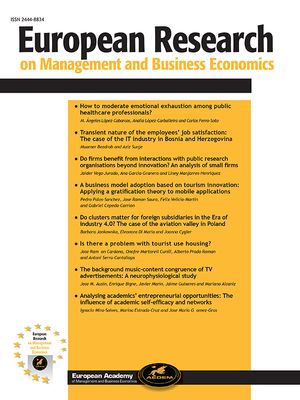La calidad en los servicios de salud ha sido discutida en varias organizaciones que se comprometen a desarrollar programas y acciones capaces de atender las expectativas de sus pacientes. El objetivo de este trabajo es analizar la relación entre las variables calidad, satisfacción, imagen, confianza y lealtad en el contexto de un servicio de urgencias hospitalarias de la Zona Centro de Portugal. Para ello, se aplicó la metodología de mínimos cuadrados parciales (PLS) a un modelo estructural construido con las variables indicadas. Los resultados permiten constatar que la imagen y reputación del servicio de urgencias no contribuye de forma significativa a incrementar la confianza en el servicio, ni para su recomendación a otras personas. Esta confianza se alcanza sobre todo por medio de la calidad percibida. La satisfacción del paciente sí que contribuye a incrementar la lealtad al centro. Además, la alta dirección del hospital debe concienciarse de la importancia de reducir los tiempos de espera, mejorar la organización del diagnóstico inicial de los pacientes y de mostrar una preocupación real con el bienestar de sus pacientes como única forma de lograr incrementar su nivel de satisfacción y la confianza en el servicio de urgencias.
The health service quality has been discussed in several organizations committed with the development of the programs and actions capable to attend the expectations of their patients. The aim of this work is to analyze the relationship among the variables quality, satisfaction, image, trust and loyalty (in the perspective of the recommendation and return) in the context of the emergency care in the Portugal Center Area. For such the Partial Least Squares technique was applied to a structural model. The results show that the image or reputation of the service of urgencies doesn't contribute in a significant way to increase the trust in it, nor for the recommendation to other people. Trust is reached, above all, through the perceived quality. Patients’ satisfaction contributes to the recommendation of the service to the family and friends and to return in case it is necessary. The hospital top management is due of the importance of reducing the time of wait, improving the organization of the initial screen of the patients, and showing a real concern with the well-being of the patients to increase satisfaction and trust in the urgency service.





